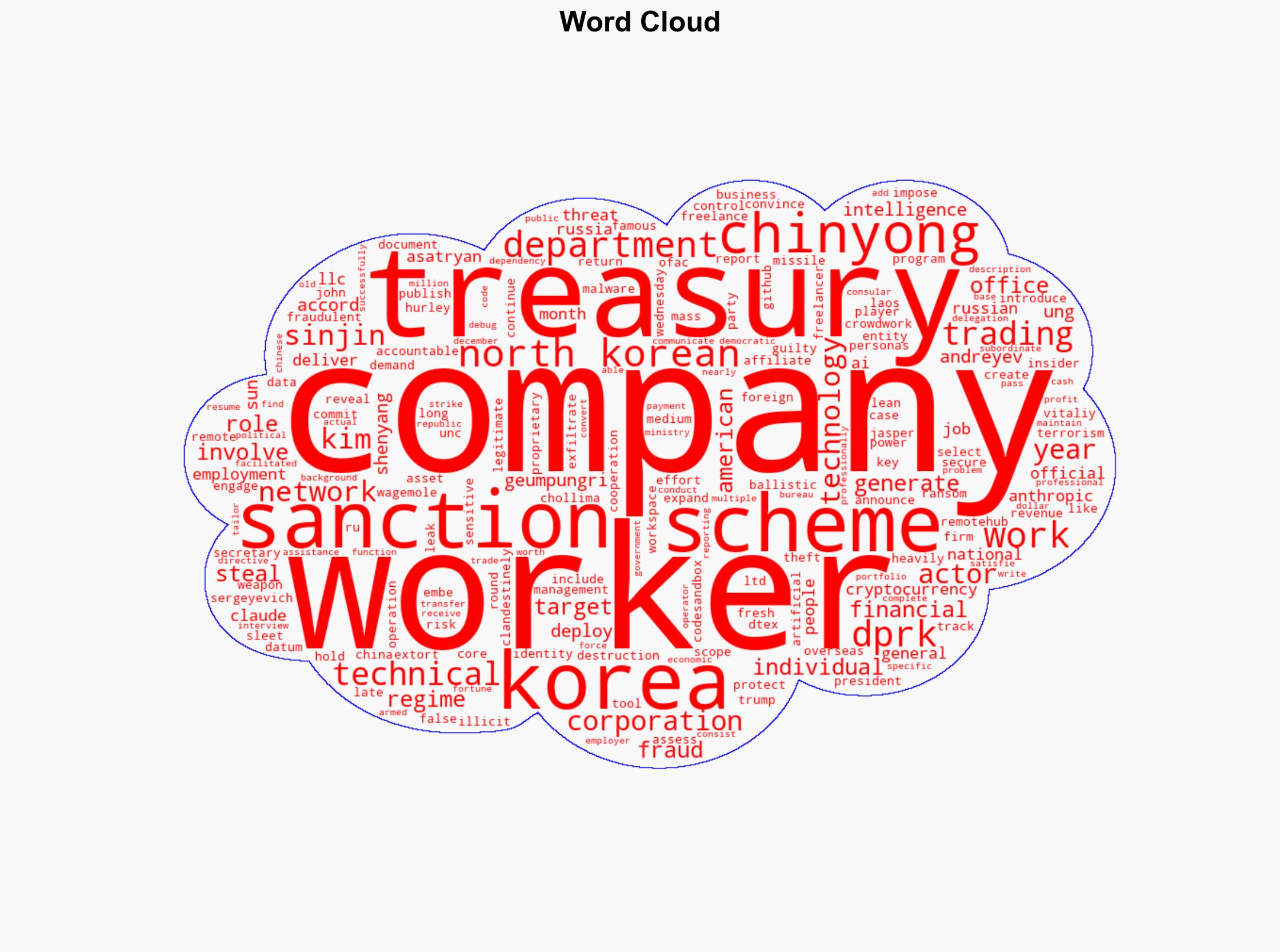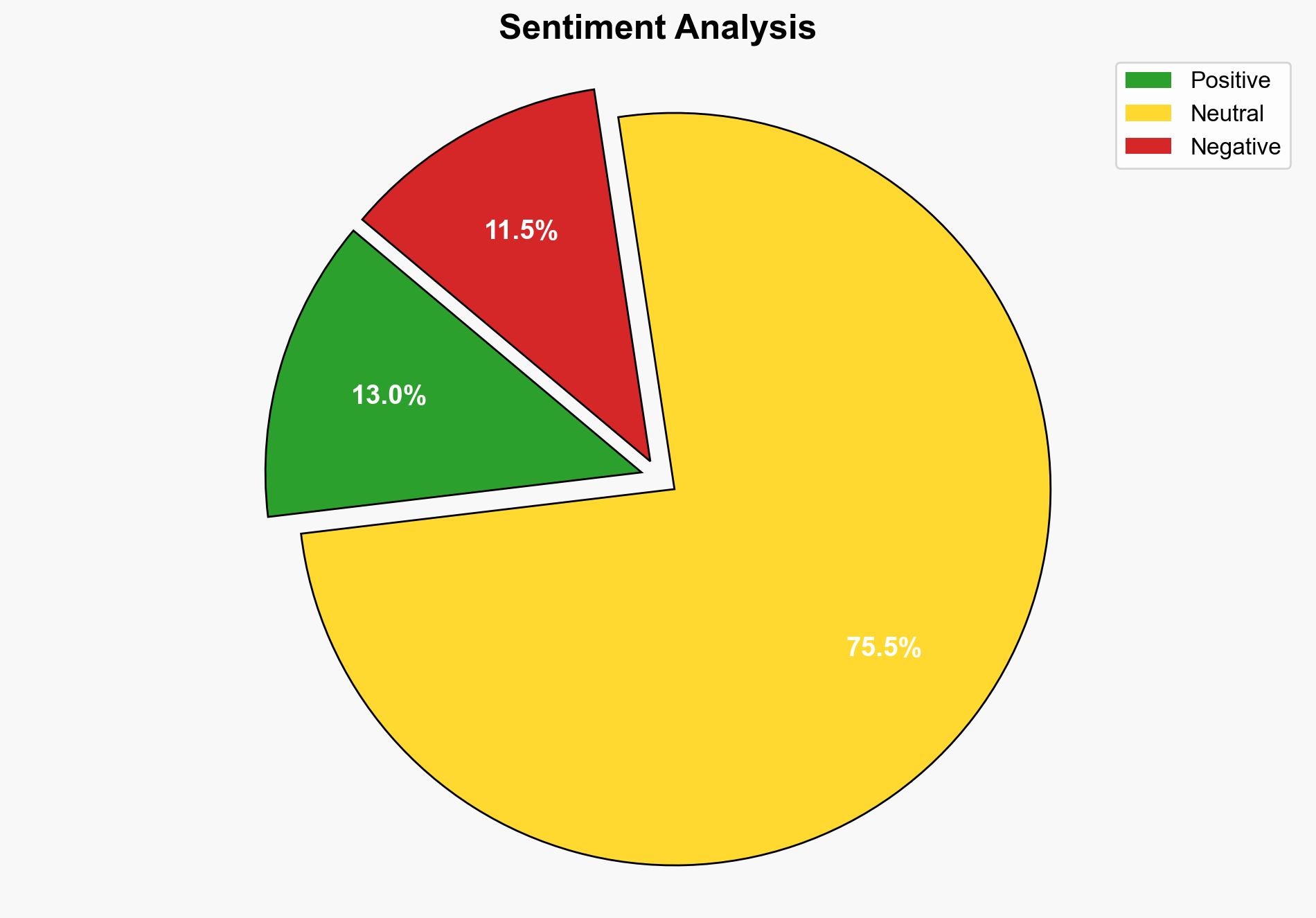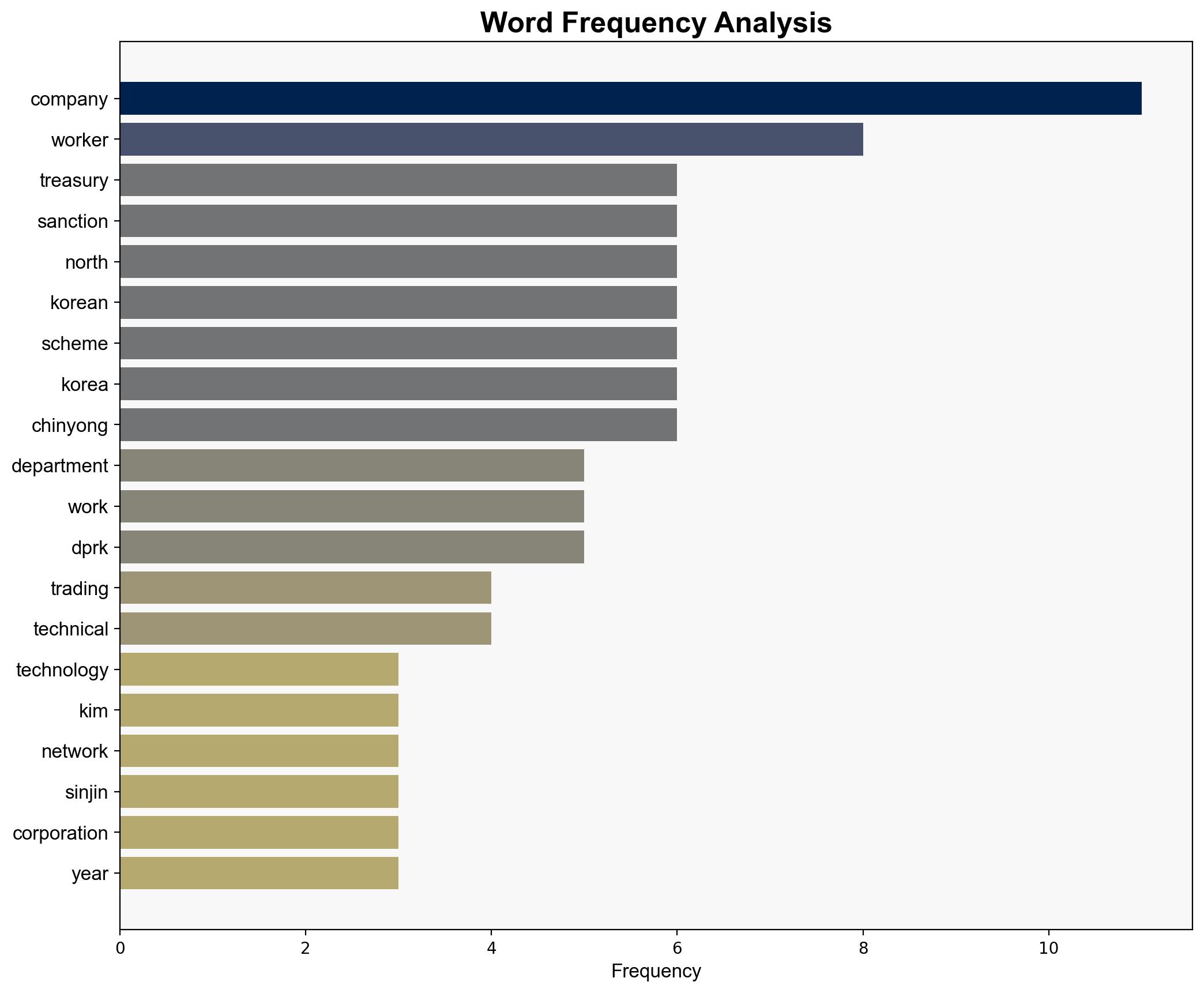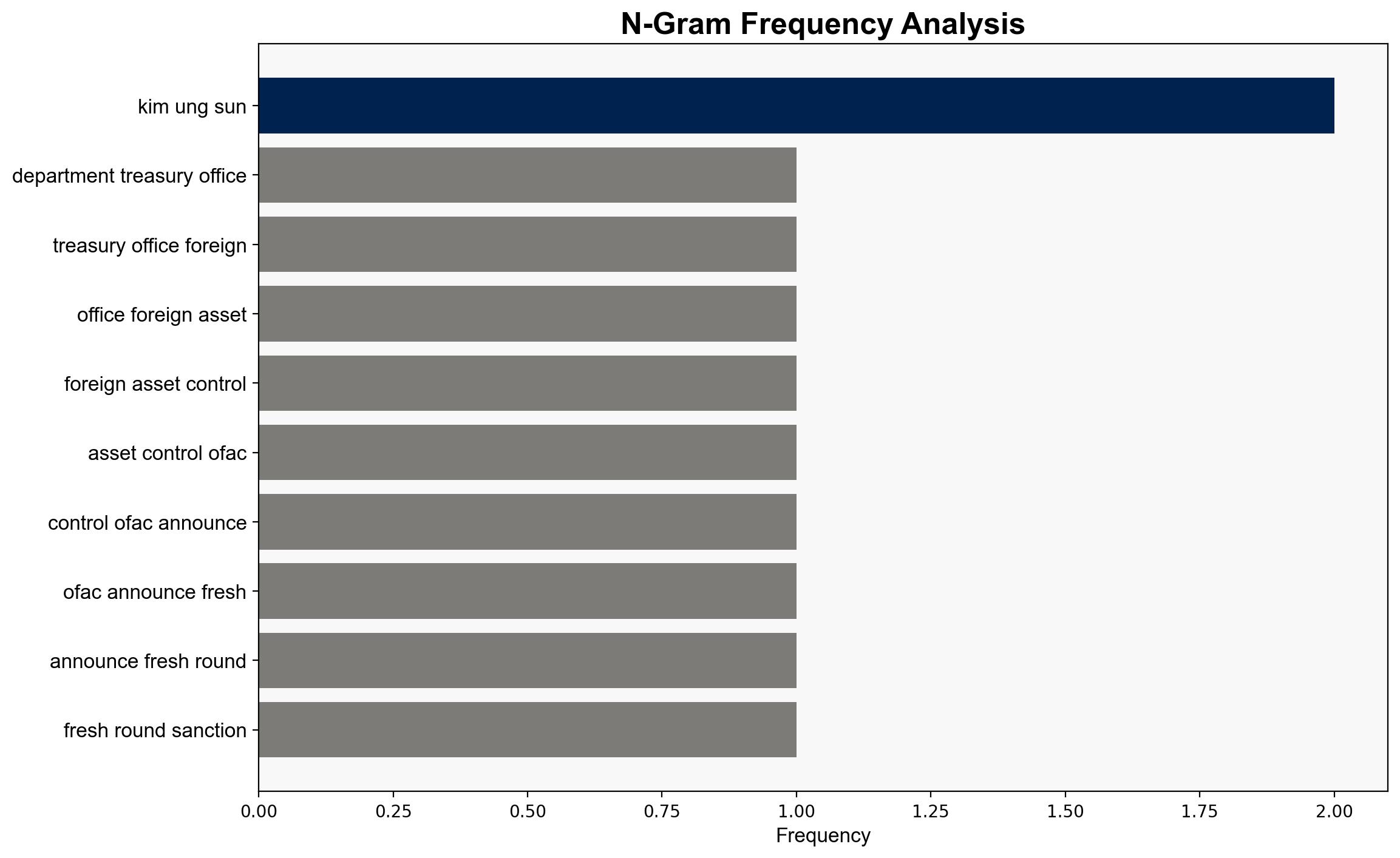US Treasury Sanctions DPRK IT-Worker Scheme Exposing 600K Crypto Transfers and 1M Profits – Internet
Published on: 2025-08-28
Intelligence Report: US Treasury Sanctions DPRK IT-Worker Scheme Exposing 600K Crypto Transfers and 1M Profits – Internet
1. BLUF (Bottom Line Up Front)
The US Treasury’s sanctions target a sophisticated North Korean IT-worker scheme that exploits international freelancing platforms to generate illicit revenue, potentially funding the DPRK’s WMD programs. The most supported hypothesis suggests a state-sponsored operation leveraging AI to enhance deception and operational efficiency. Confidence level: High. Recommended action: Strengthen international cooperation to disrupt these networks and enhance cybersecurity measures across vulnerable sectors.
2. Competing Hypotheses
Hypothesis 1: The DPRK IT-worker scheme is a state-sponsored operation designed to generate revenue for North Korea’s WMD programs. This operation uses AI tools to enhance the credibility and effectiveness of its fraudulent activities.
Hypothesis 2: The scheme is primarily driven by independent criminal networks within North Korea, using state resources opportunistically but not directly controlled by the government. AI tools are employed to maximize profits and reduce detection risk.
Using ACH 2.0, Hypothesis 1 is better supported due to the involvement of DPRK government officials and entities, consistent with state-sponsored activities. The structured use of AI and the scale of operations suggest centralized coordination.
3. Key Assumptions and Red Flags
– Assumption: The DPRK government directly controls the scheme. This assumes a high level of state coordination and oversight.
– Red Flag: The reliance on AI tools could indicate a shift in DPRK tactics, potentially obscuring the true scale and scope of operations.
– Missing Data: Details on the exact mechanisms of AI deployment and the extent of international collaboration in these schemes are unclear.
4. Implications and Strategic Risks
The operation poses significant cybersecurity threats, potentially compromising sensitive data across multiple sectors. Economically, it undermines legitimate freelancing markets and could escalate geopolitical tensions, particularly if linked to DPRK’s WMD funding. The psychological impact includes increased distrust in international freelancing platforms and AI technologies.
5. Recommendations and Outlook
- Enhance international intelligence-sharing frameworks to track and disrupt DPRK-linked cyber operations.
- Implement stricter verification processes on freelancing platforms to detect fraudulent identities.
- Scenario Projections:
- Best Case: International collaboration effectively dismantles the network, reducing DPRK’s illicit revenue streams.
- Worst Case: The scheme evolves, increasing sophistication and scale, further funding DPRK’s WMD programs.
- Most Likely: Continued partial disruption with ongoing adaptation by DPRK actors.
6. Key Individuals and Entities
Vitaliy Sergeyevich Andreyev, Kim Ung Sun, Shenyang Geumpungri Network Technology Ltd, Korea Sinjin Trading Corporation, Chinyong Technology Cooperation Company, Chollima, Jasper Sleet, UNC Wagemole.
7. Thematic Tags
national security threats, cybersecurity, counter-terrorism, regional focus





